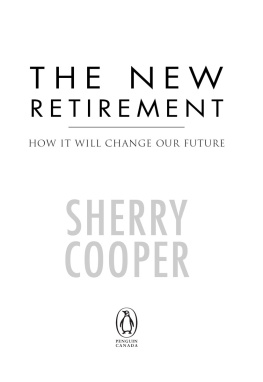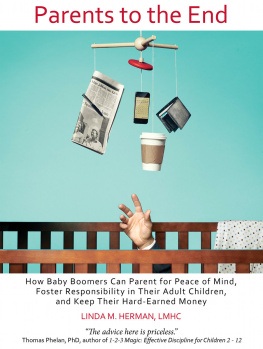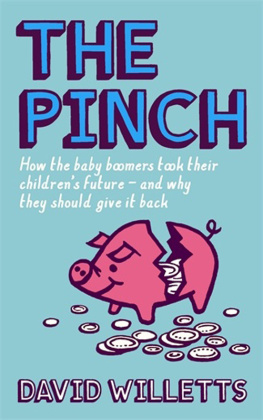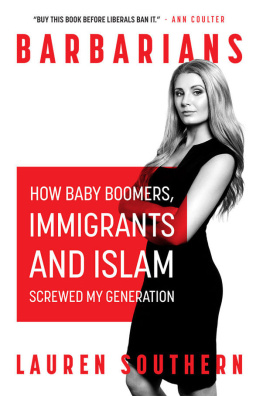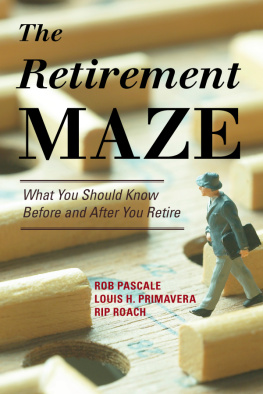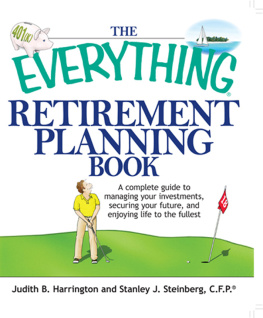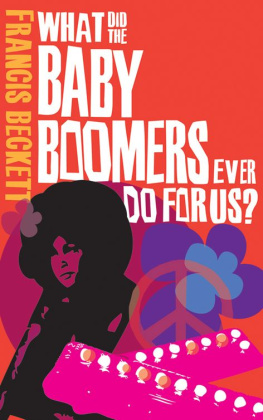Life 3.0
Protirement NOT Retirement
Ellis Katsof, MSW

Published by: MyProtirement
MyProtirement, St. Catharines,
Ontario, Canada
First published: 2017
Copyright Ellis Katsof, 2017
All rights reserved. Without limiting the rights under copyright reserved above, no part of this publication may be reproduced, stored in or introduced into a retrieval system, or transmitted in any form or by any means (electronic, mechanical, photocopying, recording or otherwise), without the prior written permission of both the copyright owner and the above publisher of this book.
Cover design by: Steve Nease
LIBRARY AND ARCHIVES CANADA CATALOGUING IN PUBLICTION
Katsof, Ellis, 1951 Oct. 14
Life 3.0
ISBN 978-0-9959306-2-9 (Book)
ISBN 978-0-9959306-3-6 (Digital)
For my wife, Coletta, whose ongoing support, encouragement
and creative input helped make this book a reality;
and for my children,
Devan, Brynne, and Zachary,
whose pursuit of their life passions
have been wonderful models for me during this journey.
Acknowledgement
I would like to thank all the amazing people who allowed me to interview them for this book. Whether their individual stories ended up in the book or not, they added so much to my understanding of peoples experiences during the protirement process. I am extremely grateful to everyone for being so open and honest with me about their own experiences. I would also like to thank Rosemarie Perla for introducing me to the Protirement concept, which began my exploration of life after retirement for Boomers. As well, I have to thank Alex Digenis for encouraging me to write the book when, at the outset of this journey, I was wavering; and for his honest challenges throughout the journey. The final product is as much a result of my research and writing as it is of my editor, Danica. Thank you for your professional and creative editing. Thanks to Steve Crane for your creative concept for the cover, and to Steve Nease for bringing that concept to life. And finally, thank you to everyone on social media who has expressed an interest in the book, your interest and encouragement has been wonderful.
TABLE OF CONTENTS
Introduction | |
| The Evolution of Pensions and Retirement | |
| Baby Boomers: Transitioning from Retirement to Protirement | |
| Protirement Advice | |
| Bridge Employment: Working Beyond Retirement | |
| Protirement Category #1: Not Retired/ Gradually Retiring | |
| Protirement Category #2: Contingency Workers | |
| Protirement Category #3: New Careers/Jobs | |
| Protirement Category #4: Seniorpreneurs | |
| Protirement Category #5: Caregivers | |
| Protirement Category #6: Political Activists | |
| Protirement Category #7: Hobbyists | |
| Protirement Category #8: Corporate Side Hustles | |
| Protirement Category #9: Travel Enthusiasts | |
| Protirement Category #10: Community Builders | |
| Protirement Category #11: Socializers | |
| Protirement Category #12: Writers & Performers | |
| Protirement Category #13: Health Enthusiasts | |
| Protirement Category #14: Life Long Learners | |
| Protirement Category #15: Philanthropists | |
| Protirement Category #16: Family Enthusiasts | |
| Protirement Category #17: Life Enthusiasts | |
| Protirement, not Retirement | |
Index |
About the Author: Ellis Katsof |
INTRODUCTION
You never change something by
fighting the existing reality.
To change something, build a
new model that makes the existing
model obsolete.
Buckminster Fuller
In October 2016, I turned 64. I had always planned on working until I was 70, but over the last couple of years, my social work career grew tedious and challenging. I loved my 40-year career. Unfortunately, changes in government policy began affecting how much I enjoyed my work.
I was always positive about work, even when social services experienced tough times during economic down turns. But this was different. I was concerned that it would have an impact on how I viewed the course of my entire career, not just the conclusion of my career. In December 2016, I took the plunge, along with many other Baby Boomers, and decided to retire. My last day at work was January 15, 2017.
A week after my retirement, I attended the annual Mayors Luncheon. Typically, people arrive early to network before the luncheon begins. As CEO of a large social service agency and its foundation, this type of networking event was an important part of my job and one I enjoyed. The networking was important to our fund raising efforts. I enjoyed working the room, meeting people, introducing myself, learning more about others, and making new contacts.
Strangely, this year, the experience was different. Suddenly, people were coming up to me, introducing themselves, giving me business cards, and asking who I was. I panicked. I found myself reaching for non-existent business cards, because I had just retired. Who was I? Who did I work for? What was my identity? How did I introduce myself? All the things that related to my job, my career, my self-identity, were no longer relevant.
I left the luncheon and quickly realized I was not prepared for this sudden change in life. I decided to start a management consulting firm. Since I had been a partner in a consulting firm in the mid 1990s, it was easy to do. I was confident in my skills and had a 40 year reputation in Ontario to build upon. Since I was not ready to retire and hang out at home, and was also concerned that my retirement savings might not last if I was fortunate to live another 20 or 30 years, this would meet a number of needs. It would provide me with a new professional identity and would also supplement my retirement income.
I did not realize how bored Id become. As a management consultant, I was doing similar work to what I had done for many years. I was ready for a real change but not sure what that meant. After thinking about all the different things that I had done in my career, I realized two things. First, my personal career mission, developed with the help of Rosemarie Perla, a personal coach in 2007, was to be a change agent and to help thousands of people positively improve their lives. Second, I really enjoyed public speaking. Since I knew it was important to talk about things that are relevant in your life, I decided to launch a public speaking career focused on changing peoples attitudes toward retirement.
As I was sorting out what retirement meant to me, I decided to do some research into how Baby Boomers were retiring. I quickly found that there was little written about the topic; 95% of the retirement books were about financial planning rather than retirement lifestyles. I visited a friend, Alex Digenis, and was excited to tell him about my new business plan. Alex, always supportive, is also the first one to build on your ideas. His first comment was, Ellis, you need to write a book to base your keynote speeches on. It will give you more credibility as a speaker. I thought about it and realized he was right. I decided to interview 10 or 15 colleagues who had retired, and then self-publish a small book on their experiences.
Next page

